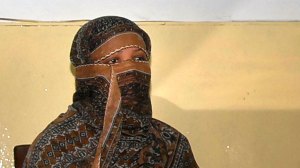In this series

The governor of Pakistan's largest province was assassinated Tuesday following his support of a pardon for a Christian woman sentenced to death for blasphemy. Media reports are describing his death as the highest-profile killing of a Pakistani leader since Benazir Bhutto was killed three years ago.
One of the governor's security guards told police he was angered by Salman Taseer's support of the woman, according to the Washington Post .
In November Asia Bibi, a 45-year-old Christian mother of five, became the first woman ever sentenced to death under Pakistan's blasphemy law. The police complaint against her said she called the Qur'an "fake," and she made comments about one of Muhammad's wives and his declining health late in life. Taseer had said that Pakistan's president would pardon her.
"I was under huge pressure sure 2 cow down b4 rightest pressure on blasphemy. Refused. Even if I'm the last man standing," Taseer wrote on Twitter on December 31.
The Associated Press reports that an elite force police commando said he was proud to have killed a blasphemer.
The killing of Punjab province Governor Salman Taseer was the most high-profile assassination of a political figure in Pakistan since former Prime Minister Benazir Bhutto was assassinated in December 2007, and it rattled a country already dealing with crises ranging from a potential collapse of the government to a virulent Islamist insurgency.
The killing could also add to concerns about inroads by Islamist extremists and fundamentalists into Pakistan's security establishment and represented another blow to the country's Pakistan's embattled secular movement.
…Punjab is a major base and recruiting ground for Pakistan's powerful military and security establishment, which many fear is coming under the increasing influence of religious fundamentalists as Islamist movements have spread in Pakistan.
The New York Times reports on how thousands of Pakistanis rallied December 31 in support of the country's blasphemy law, which rights groups say has been used to persecute minorities, especially Christians.
The human rights commission has documented scores of cases in which men have been harassed for being Christian or for being members of the Ahmadi sect, a minority group within Islam, and then accused of blasphemy. The mere fact of being a Christian or an Ahmadi in Pakistan makes a person vulnerable to prosecution, the commission says. Often the mere accusation of blasphemy has led to murders, lynchings and false arrests.

















